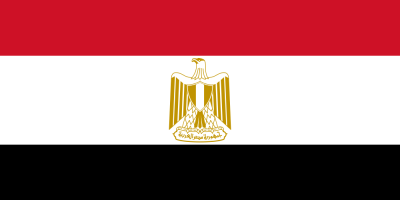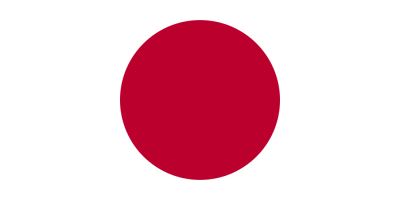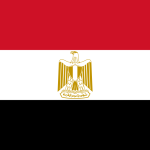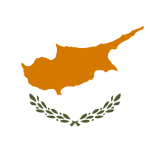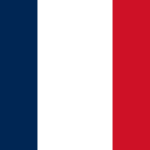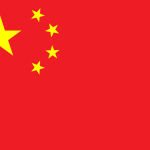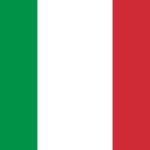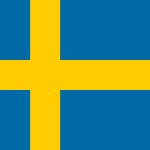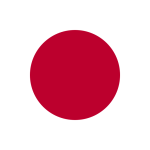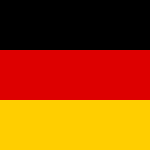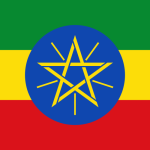Kuwait flag color codes consists of three equal horizontal bands of green, white, and red. These colors hold cultural symbolism for the Kuwaiti people and can be represented through various color coding systems. In this article, we provide Kuwait flag color codes in HTML HEX, RGB, PANTONE, HSL, CMYK, HWB, and NCOL formats. Whether you need to reproduce the colors of the Kuwait flag for web design, print projects, textiles, or other applications, these color codes will allow you to accurately match the green, white, and red shades. With the provided Kuwait flag color codes, you’ll have what you need to pay tribute to this small but prosperous Middle Eastern country. Refer to this guide anytime you need the official color specifications for the iconic Kuwaiti national flag.
Table of Contents
What are the colors of Kuwait flag?
The colors of the Kuwait flag are:
- Green – The top horizontal band is green. This represents the dynastic color of the Al-Sabah family and Islam.
- White – The middle horizontal band is white. This represents peace and prosperity.
- Red – The bottom horizontal band is red. This represents the bloody battle against invaders.
So in summary, the three colors of the flag of Kuwait are green, white, and red. These three equal horizontal bands make up the national flag.
Green symbolizes the Al-Sabah dynasty and Islamic faith. White represents peace and prosperity. Red stands for the bloodshed in defense of the nation. Together, they reflect important principles for the Kuwaiti people.
Kuwait flag color codes & Color Names:
GREEN
| Color Model | Value |
|---|---|
| HTML | #007A3D |
| HEX | RGB(0, 122, 61) |
| RGB | RGB(0, 122, 61) |
| PANTONE | 355 C |
| HSL | HSL(142, 100%, 24%) |
| CMYK | CMYK(100%, 0%, 50%, 52%) |
| HWB | HWB(142, 0%, 52%) |
| NCOL | N/A |
WHITE
| Color Model | Value |
|---|---|
| HTML | #FFFFFF |
| HEX | RGB(255, 255, 255) |
| RGB | RGB(255, 255, 255) |
| PANTONE | N/A |
| HSL | HSL(0, 0%, 100%) |
| CMYK | CMYK(0%, 0%, 0%, 0%) |
| HWB | HWB(0, 100%, 0%) |
| NCOL | N/A |
RED
| Color Model | Value |
|---|---|
| HTML | #CE1126 |
| HEX | RGB(206, 17, 38) |
| RGB | RGB(206, 17, 38) |
| PANTONE | 186 C |
| HSL | HSL(357, 85%, 43%) |
| CMYK | CMYK(0%, 92%, 81%, 19%) |
| HWB | HWB(357, 0%, 19%) |
| NCOL | N/A |
What is the meaning of colors in the Kuwait flag?
The three colors of the Kuwaiti flag each have symbolic meaning:
- Green – The green band represents the Al-Sabah dynasty and Islam. Green is seen as the traditional color of Islam and also refers to the country’s prosperity.
- White – The white band symbolizes peace, purity, and prosperity. White represents the kuwaiti desire for tranquility.
- Red – The red band stands for the bloodshed by Kuwaiti ancestors in defense of the nation. Red represents courage and sacrifice.
In summary:
- Green refers to Islam, the ruling family, and wealth.
- White represents peace and purity.
- Red symbolizes the bloodshed in Kuwait’s battle for independence.
Together, the colors of the Kuwaiti flag reflect core principles of the nation – faith, tranquility, and a willingness to defend their homeland. The green, white, and red bands create a symbolic flag for this small but prosperous country.
Explore More Flag Colors:
FAQs: Frequently Asked Questions:
Is Kuwait a rich or Poor country?
The country has a small population relative to its oil wealth, further contributing to high per capita income.
Key factors contributing to Kuwait’s economic status include:
Oil Reserves: Kuwait possesses substantial oil reserves, and oil exports have historically been the primary driver of the country’s economy. Revenue from oil sales has funded infrastructure development, social services, and economic diversification efforts.
High GDP per Capita: Kuwait consistently ranks among the countries with the highest gross domestic product (GDP) per capita globally. This indicates a high standard of living for its residents.
Investment in Infrastructure: Kuwait has invested in extensive infrastructure development, including modern transportation systems, education, and healthcare facilities.
Social Welfare: The government of Kuwait provides extensive social welfare services to its citizens, including subsidized healthcare, education, and various other benefits.
Why is Kuwait so famous?
Kuwait is known for several reasons, and its fame is often associated with various aspects of its history, culture, and economic significance. Here are some reasons why Kuwait is considered famous:
Oil Reserves: One of the primary reasons for Kuwait’s global recognition is its significant oil reserves. As one of the world’s major oil exporters, Kuwait has played a crucial role in the global energy market.
Wealth and Prosperity: Kuwait has a high-income economy, and its citizens enjoy a relatively high standard of living. The country’s wealth, derived from oil revenues, has allowed for extensive infrastructure development and investment in social services.
Geopolitical Importance: Kuwait’s strategic location in the Middle East, situated at the northern tip of the Persian Gulf, makes it geopolitically significant. The country has played a role in regional affairs and international relations.
History and Culture: Kuwait has a rich history that predates its modern economic prosperity. The country’s cultural heritage includes traditional arts, music, and a distinctive culinary tradition. The old city of Kuwait, with its historic architecture, is a testament to the nation’s history.
Gulf War: Kuwait gained international attention during the Gulf War (1990-1991) when it was invaded by Iraq. The subsequent liberation of Kuwait by a coalition of international forces led by the United States garnered global support and shaped geopolitical dynamics in the region.
Is Kuwait a good country to live and work?
Here are some factors to consider when evaluating whether Kuwait is a good fit for you:
Positive Aspects:
High Standard of Living: Kuwait has a high standard of living, with modern infrastructure, healthcare, and education facilities.
Wealth and Prosperity: The country’s wealth, derived from oil revenues, allows for various amenities and services for residents.
Tax-Free Income: Kuwait does not impose income tax on individuals, which can be a financial benefit for expatriates.
Safety and Stability: Kuwait is known for its political stability and relatively low crime rates, providing a secure environment for residents.
Career Opportunities: The country offers opportunities for employment, particularly in sectors such as oil and gas, finance, and various other industries.
Considerations and Challenges:
Cultural Differences: Kuwait has a conservative culture influenced by Islamic traditions. Expatriates should be aware of and respect cultural norms and traditions.
Climate: Kuwait has a hot desert climate, with extremely high temperatures during the summer months. Some individuals may find this climate challenging.
Language: Arabic is the official language, and while English is widely used in business, knowledge of Arabic can enhance daily interactions.
Residency Laws: There are specific residency laws in Kuwait, and expatriates are required to adhere to them. It’s essential to be aware of the regulations regarding work permits and residency.
What is the real name of Kuwait?
The official name of the country is the State of Kuwait. “Kuwait” itself is derived from the Arabic word “kūt,” which means “fortress” or “castle.” The name reflects the historical significance of Kuwait as a trading post and settlement with defensive structures.
Is Kuwait richer than Dubai?
Comparing the wealth of Kuwait and Dubai (which is part of the United Arab Emirates) is somewhat challenging, as wealth can be measured in various ways, and both regions have different economic structures.
Kuwait: Kuwait is a wealthy country with a high-income economy, largely driven by its significant oil reserves. The country has a small population relative to its oil wealth, contributing to high per capita income. The government has invested in infrastructure, social services, and economic development.
Dubai (United Arab Emirates): Dubai, one of the emirates of the United Arab Emirates (UAE), is known for its rapid economic development and diversification beyond oil. Dubai has invested heavily in real estate, tourism, trade, and other sectors. It is a global business hub with a diverse and dynamic economy.
Is Kuwait is a safe country?
Key factors contributing to Kuwait’s safety include:
Political Stability: Kuwait is known for its political stability. The government has a well-established political system, and there is a relatively low level of political unrest.
Low Crime Rates: Kuwait has relatively low crime rates compared to many other countries. Violent crime is rare, and the overall safety of residents and visitors is a priority.
Security Measures: Kuwait implements strict security measures to ensure the safety of its residents. The country has a well-functioning law enforcement system.
Safety for Expatriates: Kuwait hosts a significant expatriate population, and many expatriates live and work in the country without major safety concerns. The government is attentive to the needs of the expatriate community.
Healthcare Standards: Kuwait has a well-developed healthcare system, ensuring that residents have access to medical care when needed.
Do they speak English in Kuwait?
Yes, English is widely spoken and understood in Kuwait, especially in business, education, and among the younger population. Kuwait is a diverse and cosmopolitan society, and English is often used as a common language for communication, particularly in international business and expatriate communities.
What money is used in Kuwait?
The official currency of Kuwait is the Kuwaiti Dinar, abbreviated as KWD or represented by the symbol “د.ك” in Arabic. The Kuwaiti Dinar is the highest-valued currency unit in the world, and it is subdivided into 1,000 fils.
What language is spoken in Kuwait?
Arabic is the official language of Kuwait. It is used in government, official documents, and educational institutions. There are various dialects of Arabic spoken in different regions, but the Kuwaiti dialect is the most commonly used in everyday communication within the country.
Is Kuwait is a developed country?
Several indicators contribute to Kuwait’s classification as a developed country:
High Gross Domestic Product (GDP) per Capita: Kuwait consistently ranks among the countries with the highest GDP per capita globally, reflecting the wealth generated from its oil industry.
Modern Infrastructure: Kuwait has invested in modern infrastructure, including transportation systems, educational institutions, healthcare facilities, and urban development.
Quality of Life: The standard of living in Kuwait is relatively high, with access to essential services, healthcare, education, and other amenities.
Political Stability: Kuwait is known for its political stability, with a well-established political system that has contributed to the country’s overall development.
Economic Diversification Efforts: While oil remains a significant contributor to Kuwait’s economy, the government has been actively working on economic diversification initiatives to reduce dependency on oil and promote sustainable growth in other sectors.
How rich is Kuwait citizens?
Key factors contributing to the wealth of Kuwait citizens include:
Oil Revenues: Kuwait is a major oil exporter, and oil constitutes a substantial portion of the country’s GDP. Oil revenues contribute significantly to the national wealth and are a key factor in the high average income per capita.
Small Population: Kuwait has a relatively small population compared to its oil wealth. This means that the wealth generated from oil resources is distributed among a smaller number of citizens, resulting in a higher average income per capita.
Social Welfare Programs: The government of Kuwait provides extensive social welfare programs to its citizens, including subsidized healthcare, education, and other benefits, contributing to the overall well-being of the population.
Why is Kuwait not the richest country?
There are several reasons why Kuwait might not be labeled as the absolute richest country, and it’s essential to consider various factors:
Wealth Distribution: While Kuwait has a high average income per capita, wealth distribution within the country may not be completely equal. There can be disparities in wealth among different segments of the population.
Economic Diversity: Kuwait has historically been heavily dependent on oil exports for its revenue. The reliance on a single commodity can make the economy vulnerable to fluctuations in oil prices. Economic diversification efforts are ongoing to reduce this dependency.
Population Size: The wealth of a country is often measured on a per capita basis. Kuwait has a relatively small population compared to some other countries, and this can contribute to higher average incomes per capita.
Comparison with Small Nations: While Kuwait is wealthy, there are smaller city-states and territories, such as Luxembourg and Qatar, that may have higher GDP per capita figures due to their smaller populations and economic structures.
Cost of Living: The cost of living in Kuwait, especially in terms of housing and certain commodities, is relatively high. This can impact the overall wealth of individuals despite a high average income.
Global Economic Factors: Economic conditions, global economic trends, and geopolitical factors can influence a country’s wealth. Kuwait, like any other nation, is subject to these external influences.
What rank is Kuwait in richest country?
Kuwait ranks among the countries with a high gross domestic product (GDP) per capita, making it one of the wealthiest nations in the world. The specific rank can vary based on the source and the methodology used to calculate GDP per capita.
International organizations such as the International Monetary Fund (IMF) and the World Bank regularly publish economic data, including GDP per capita rankings. For the most up-to-date and accurate information on Kuwait’s rank among the richest countries, it is recommended to refer to the latest reports and publications from these organizations or other reputable sources that provide economic indicators.

